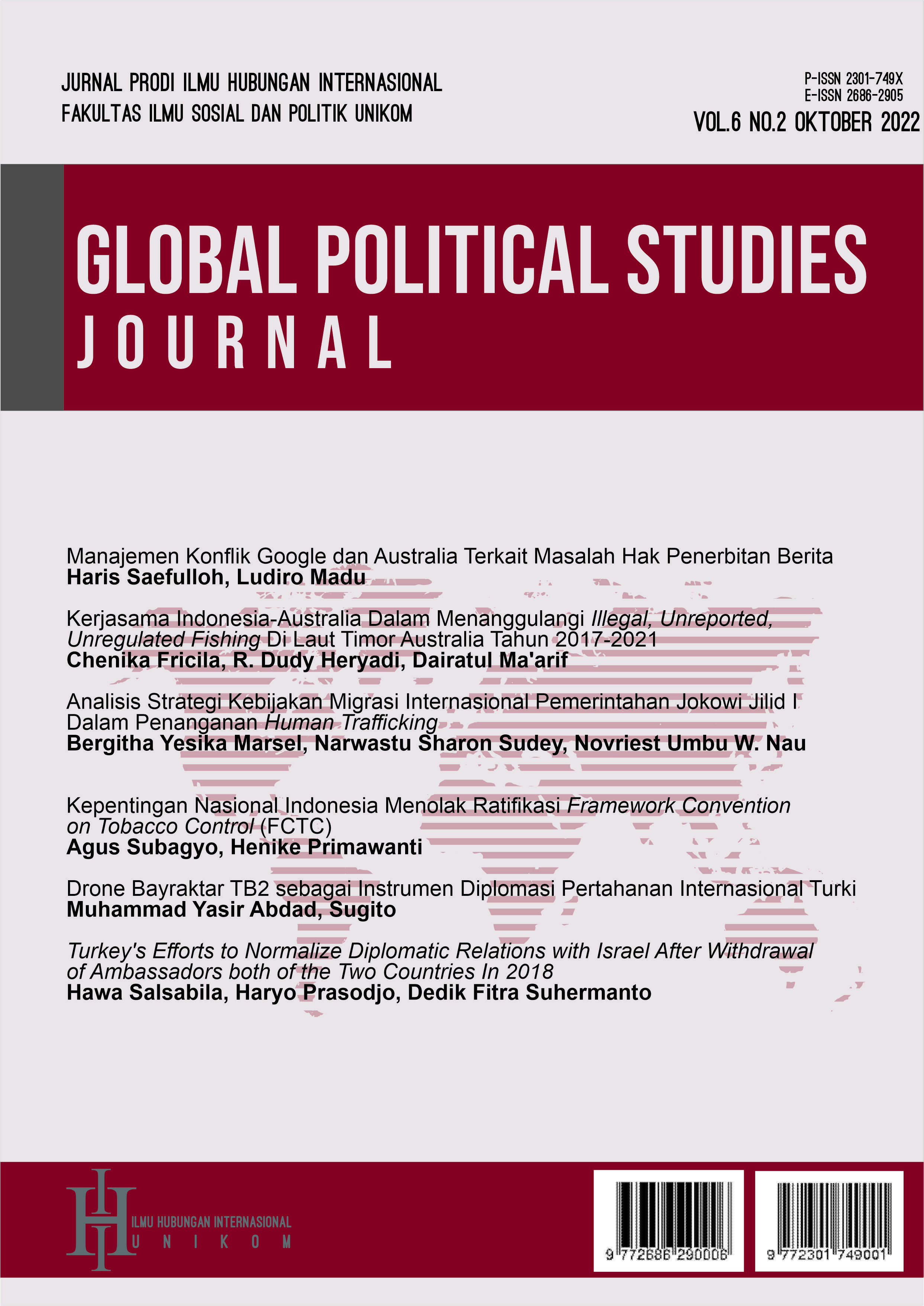Kepentingan Nasional Indonesia Menolak Ratifikasi Framework Convention on Tobacco Control (FCTC)
Abstract
A one of the international agreements under WHO relating to publik health is the FCTC (Framework Convention on Tobacco Control) which aims to protect people in the world from the threat of the impact of cigarette consumption and the implications of exposure to cigarette smoke. To date, Indonesia is the only country in Asia that has not ratified the FCTC. This study wants to find answers to the question why Indonesia refuses to ratify the FCTC? In answering this question, the theoretical basis of James S Rosenau's foreign policy is used. The method used is a qualitative method with interview data collection techniques and literature study. The results of this study indicate that Indonesia rejects FCTC ratification due to systemic factors (in the form of FCTC being seen as a Western global regime that will dominate the Indonesian tobacco market), governmental faktors (in the form of rejection by the Ministry of Industri and Trade because FCTC is detrimental to the national economy), societal factors (in the form of pressure from tobacco farmer groups towards FCTC), and idiosyncratic factors (values, experiences, and relations of parliamentarians with tobacco farmers). The novelty found is that the Indonesian government prefers economic interests, compared to publik health interests.
Keywords: National Interest, Ratification, FCTC.












